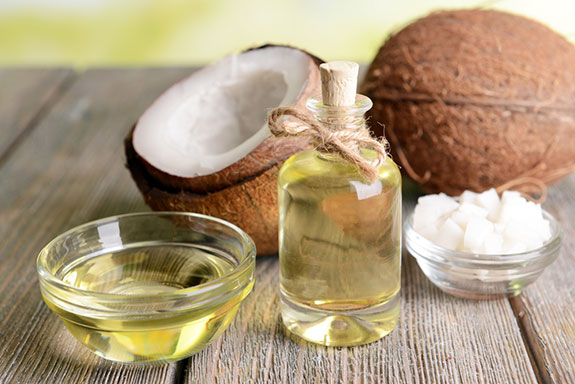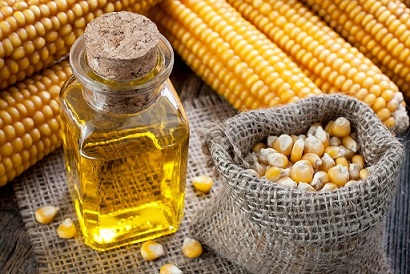Canola oil is produced from the seed of a canola plant which is in the family of Brassicaceae plants. Canola is edible oil that is heart healthy and saturated with less fat. However, even with its health benefits, some people may just not like the taste of it; or in other cases, this oil is just not available on hand. When that happens, don't worry, there are many canola oil alternatives to go for.
Canola Oil Substitute Options
1. Sunflower Oil
 With a high smoking point and a neutral flavor just like canola oil, sunflower oil can be used to substitute canola oil for a variety of recipes in baking, browning and pan frying.
With a high smoking point and a neutral flavor just like canola oil, sunflower oil can be used to substitute canola oil for a variety of recipes in baking, browning and pan frying.
Sunflower oil is a good source of polyunsaturated fats that help in better cholesterol levels and help in preventing type 2 diabetes. In addition, it improves your heart health by balancing fatty acids, enhances skin healthy because it is rich in vitamin E, prevents cancer and boosts energy.
Caution: Though the fatty acids in the oil are essential and important in the diet, sunflower oil has a higher number of omega 6 content than other vegetable oils.
2. Safflower Oil

This canola oil substitute option has a high smoking point and a neutral flavor, making it the best choice for not only pan frying but also baking. It is flavorless, colorless and nutritionally similar to sunflower oil, it is mainly used in salad dressing.
Safflower oil has many health benefits such as preventing diabetes by managing the blood sugar, promoting healthier hair and preventing the severity of premenstrual syndrome symptoms in ladies.
Caution: If you have a problem in blood clotting, please DO NOT use the safflower oil because it can dramatically slow down blood clotting since it is a blood thinner. In addition, if you have allergy to ragweed and others in the family, please avoid safflower oil as it can cause allergic reactions of varying severity.
3. Coconut Oil
 This oil can be used as an alternative to the canola oil for any recipes in the same amount when cooking. Produced from the coconut, it is best when it is cold-pressed and virgin. For liquid form, use a low heat to melt the oil before using and make sure you warm the food before mixing with this oil to prevent it from hardening again.
This oil can be used as an alternative to the canola oil for any recipes in the same amount when cooking. Produced from the coconut, it is best when it is cold-pressed and virgin. For liquid form, use a low heat to melt the oil before using and make sure you warm the food before mixing with this oil to prevent it from hardening again.
The oil is a high heat threshold and contains a medium chain of fatty acids that can support both weight loss and the nervous system. Besides, it helps in digestion by improving the digestive system thus preventing stomach related problems.
4. Olive Oil
 With a stronger flavor than canola oil, olive oil may not be a good choice for baking. But that flavor makes it great for other dishes, such as salad dressings or pasta sauces.
With a stronger flavor than canola oil, olive oil may not be a good choice for baking. But that flavor makes it great for other dishes, such as salad dressings or pasta sauces.
Obtained from a traditional tree crop of the Mediterranean basin, the oil is produced by pressing the whole olives. It is commonly used in cooking, cosmetics and pharmaceuticals. Apart from the good taste, olive oil has multiple health benefits, including the prevention of breast cancer, diabetes and arthritis, cholesterol controling, weight loss, and digestive system cleaning.
5. Soybean Oil
 Extracted from the soybean, it is one of the oils which are used widely and is also one of the canola oil substitute options you can go for. Soybean is one of the most cultivated and utilized plants in the world, particularly in the recent decade. Most soybean oil is refined, blended and sometimes hydrogenated.
Extracted from the soybean, it is one of the oils which are used widely and is also one of the canola oil substitute options you can go for. Soybean is one of the most cultivated and utilized plants in the world, particularly in the recent decade. Most soybean oil is refined, blended and sometimes hydrogenated.
Having a higher smoking point makes it an ideal idea for frying. With a natural, clean flavor and an odor that is nearly imperceptible, soybean oil is great for salad dressing, shortening, baking, etc.
6. Cottonseed Oil
 Also referred as American original oil, it is one of the vegetables oils that are used globally since the 1880s. The oil is often used for deep frying and baking for its neutral taste just like canola oil. Besides that, cottonseed oil is also great for mayonnaise, sauces, salad dressings, and marinades.
Also referred as American original oil, it is one of the vegetables oils that are used globally since the 1880s. The oil is often used for deep frying and baking for its neutral taste just like canola oil. Besides that, cottonseed oil is also great for mayonnaise, sauces, salad dressings, and marinades.
In addition, the oil has a multiple health benefits; it whitens the teeth, is used in the skin care products, moisturizes the hair mask, treats the black acne and so on.
7. Peanut Oil
 Another canola oil substitute option, the oil is mainly used in the Asian cultures. This oil comes in a number of varieties like refined, unrefined, roasted and cold-pressed.
Another canola oil substitute option, the oil is mainly used in the Asian cultures. This oil comes in a number of varieties like refined, unrefined, roasted and cold-pressed.
With a high smoke point just like canola oil, you can use it to substitute canola oil in pan frying and deep frying. In addition, this oil is also great for grilling and roasting. But with a mild flavor, do not use it for baking, which requires a neutral flavor.
8. Corn Oil
 As the name suggests it is extracted from the germ of corn; it is mainly used for cooking where its high smoking point make it the perfect choice for frying; in addition, it is also a key ingredient for making margarine.
As the name suggests it is extracted from the germ of corn; it is mainly used for cooking where its high smoking point make it the perfect choice for frying; in addition, it is also a key ingredient for making margarine.
Corn oil is composed of mainly polyunsaturated fatty acids and low on saturated fat. It lowers the cholesterol levels, helps in the health of the cardiovascular system, lowers the blood pressure, and helps in skin care.
Caution: Avoid buying corn oil that is genetically modified since GMO products have proven to have negative health effects.
